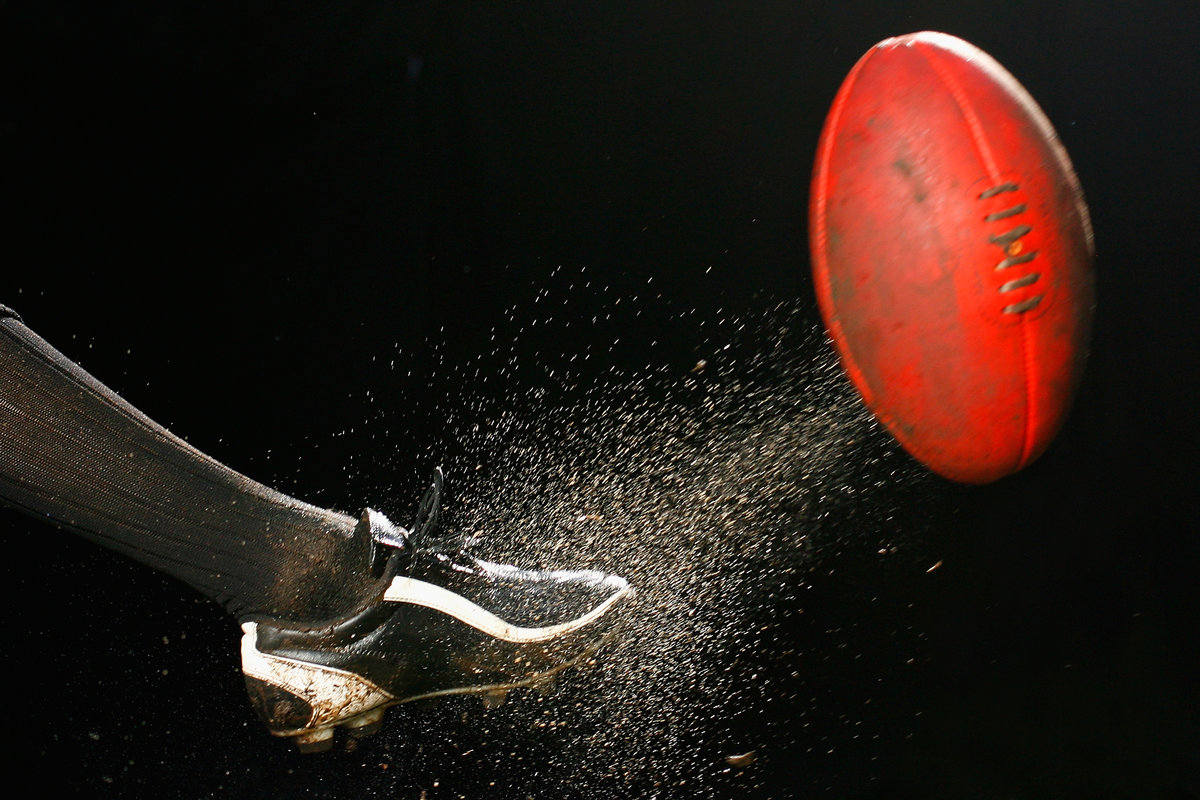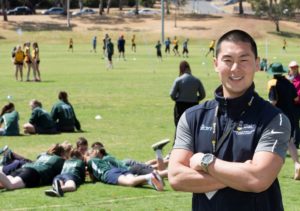
Why hasn’t AFL set-shot kicking improved with other advancements in the game? Goal kicking is getting worse with data revealing a historic low of 51.1% of all set shots hit their target in 2019.
In the first Australian study of it’s kind, Flinders University sports researchers analysed the cognitive changes semi professional and junior players make during a set shot kicking attempt, revealing senior players abandon regular routines and thought processes as shots, beyond 40 metres, become more difficult to convert into a goal.
Lead author Dr Sam Elliott, from the centre for Sport, health and Physical Education (SHAPE) says the cutting edge study focused on understanding the cognitive thoughts AFL players experience when attempting to convert a set shot attempt on goal from varying distances and angles, in an outcome-focused climate.
“Research shows that AFL set shot kicking success rates hover around 55% and decrease by 13% in wet conditions. We’re developing an association between an AFL players proficiency in front of goal and the types of thought processes that will allow players to have increased success across the season or a prolonged period of time,” says Dr Elliott.
“Understanding how the difficulty of a kick influences player thought patterns will have implications for coaches in terms of training and developing coping mechanisms to manage stress when taking shots on goal, and players themselves can find active ways to have their greatest success in kicking goals consistently.”
It is one of the most crucial parts of the game. But goal kicking is one area that hasn't seen much improvement throughout the history of the AFL. @Flinders researchers are now hoping they can change that, using mind games. https://t.co/8ftPfFYTVQ @elise_baker_ #7NEWS pic.twitter.com/Sx31ovcLAj
— 7NEWS Adelaide (@7NewsAdelaide) June 2, 2020
The study determined adult Australian football players alters their normal procedure when kicking from over 40 metres, as opposed to closer range 30 and 40m distances, which directly impacts decisions about type of kick, target visualisations and amount of information gathered, among other thoughts, and leads to the abandonment of their usual cognitive routine at smaller distances for a set shot.

Flinders researchers utilised a novel method called Think Aloud by asking 37 senior and 27 junior players to verbalise their thought processes in real time during a set shot on goal. This involved recording verbalised thoughts with wearable, versatile action camera technology during the performance of a task.
To create a competitive and high pressure environment, Dr Elliott kept a real person on the mark and on the goal line- his team also encouraged players with sports vouchers for high success rates on goal kicking attempts.
“There is a real training principal about making stronger links between an AFL players perception and actions during a set shot on goal in order to improve efficiency. It’s important to explore a wide range of ‘thought processes’ and kicking styles to identify the best way to perform the shot.”
“This type of methodology is cutting-edge in terms of improving our understanding of human performance. Previous research has found athletes are able to reallocate cognitive resources without impacting the outcome of their goals.”
“We’ve already seen advancements in cycling, poker, gymnastics, golf and cricket using think aloud methodology and this is the first time we’ve used this in a team based sport which could lead to improvement in the one aspect of AFL we’re yet to see improvement in. Sometimes the game hangs on that critical moment of a set shot so the ability improve the reliability of kicking the goal is driving this research.”
The goal kicking study identified nine core themes associated with AFL players cognition when performing the set shot attempt on goal:
- Description of outcome
- Diagnosis of outcome
- Gathering information
- Mental readiness
- Planning
- Reactive comments
- Technical instruction
- Pre-performance routines
- Self-doubt
Dr Elliott says the next step to find funding for research which focuses specifically on elite AFL players talent-identified youth’s cognitions and the association with successful set shots on goal.
“So we can determine in what capacity do certain types of thoughts impact on success on goal at the highest level,” says Dr Elliott.

